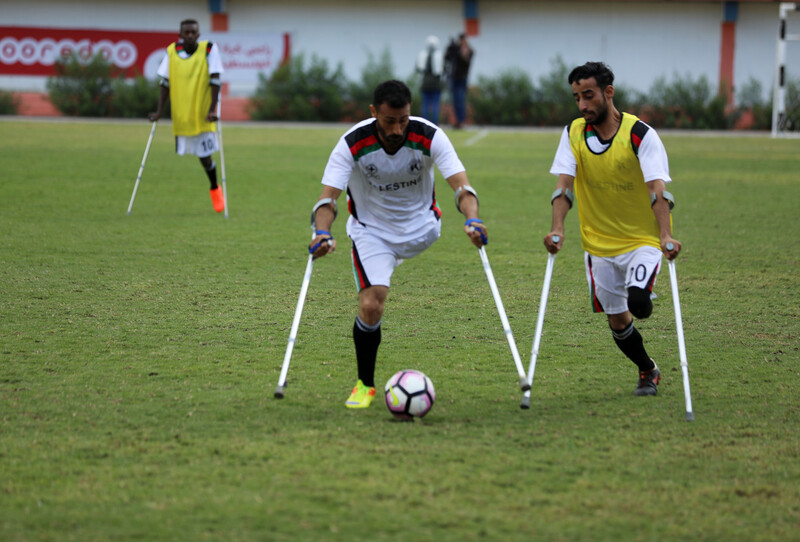From the moment she awakened, even before she knew where she was, she understood what she had lost. Immobilized in a hospital bed, 17-year-old Marah Maher surfaced into a new awareness of her body: There was shrapnel embedded in her shattered shoulder, a deep wound sewn shut across her throat, bruises and abrasions covering her face and torso. She felt the pain first, and then, below her thighs, she felt nothing at all.
After five days in a coma at the Emirati field hospital in southern Gaza, Marah’s eyes fluttered open, and the doctors ran to get her father from a nearby waiting area.
“How is my niece?” Marah asked immediately. She needed to know that her sister’s youngest daughter — the lone survivor of an Israeli missile strike that had killed her parents and only sibling in northern Gaza nearly three months earlier — was safe.
“She’s fine,” Marah’s father assured her. “She’s with your aunt.” This was not true, but he couldn’t bear to tell his daughter, not yet. He didn’t want her to know that her niece had been killed in the bombing Marah had just survived; he didn’t want Marah to know that her mother was in another room in the same hospital, one of her legs burned nearly to the bone.
Marah heard his answer, then sank back into unconsciousness.
When she awoke again, her cousin was beside her. “What happened?” Marah asked her. “Why can’t I feel my legs?”
“There was a bombing,” her cousin said, “but you are okay — your legs are okay.”
Marah’s legs were not okay, and she knew it, though she could not lift her head to look. Through the delirium of pain and semiconsciousness, she could sense an absence, the redrawn borders of her own body. “I am amputated,” she told her cousin, not a question this time.
Marah understood how likely this outcome was. Just three months into the war between Israel and Hamas, she already knew of so many children who had lost limbs in the bombardment of the Gaza Strip. On the night of Jan. 17, 2024, Marah became one of them, part of what the U.N. humanitarian aid organization OCHA has described as “the largest cohort of pediatric amputees in modern history.” In a 16-hour surgery, surgeons amputated both of Marah’s legs above the knee.
For 45 days, Marah could not move, or see the loss for herself. Her family kept offering vague reassurances, but she was anxious to understand the extent of her injury. A doctor finally used a phone to photograph her lower body, then held the screen so she could see. “Don’t be scared,” he told her, “It’s okay.” Marah stared up at the image of her bandaged thighs and the empty bed below them. She wasn’t scared, she remembers; all she felt was pain.
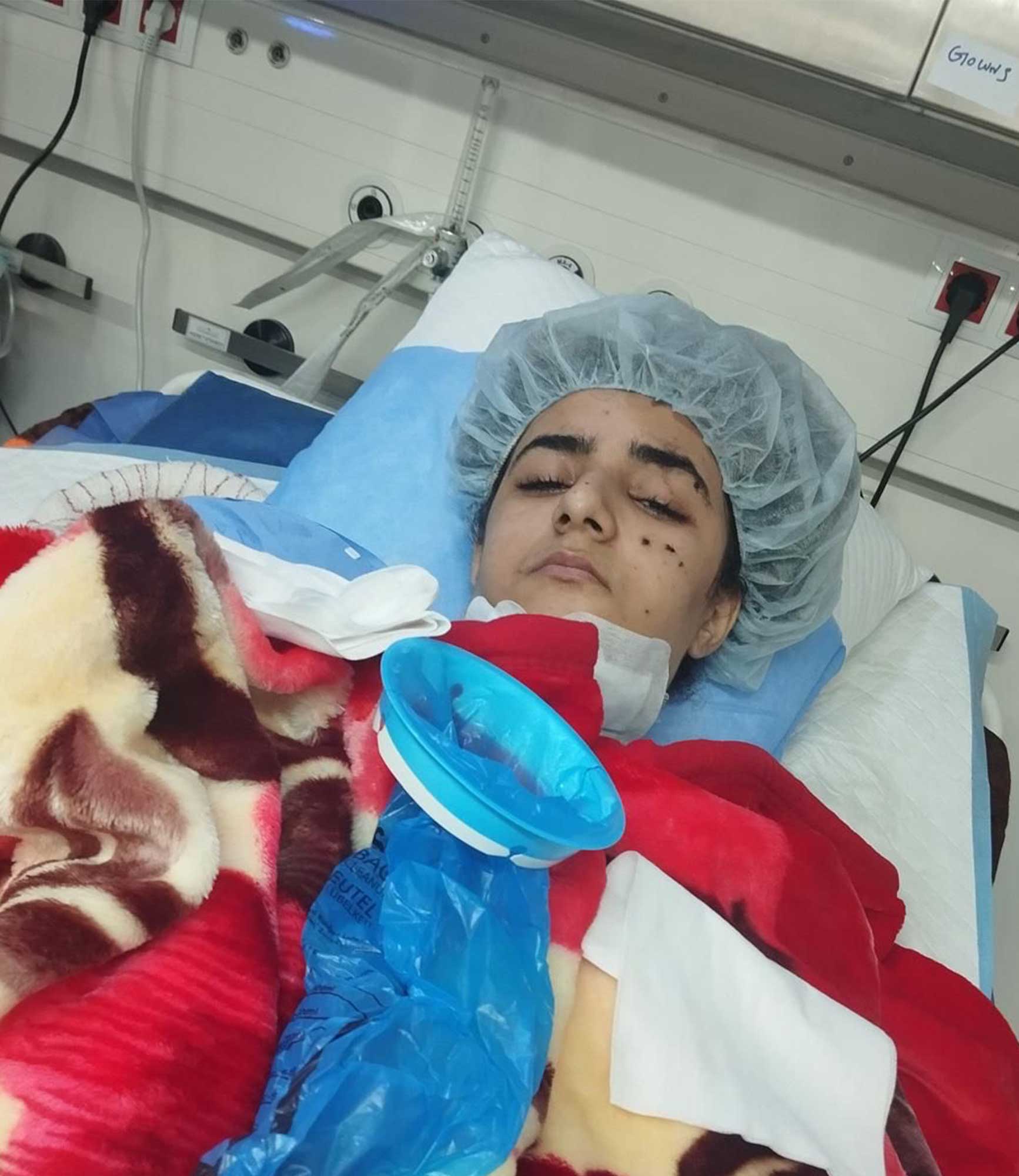
She finally left the hospital in June 2024, after seven surgeries; her mother, Amal Albar, stayed behind to receive more treatment for her own leg injury. Marah moved into her family’s tent in a refugee camp in Rafah, where food was scarce, running water was nonexistent and the Israeli ground offensive meant a constant threat of deadly missile strikes and tank shellings.
A field worker for the nonprofit humanitarian aid organization HEAL Palestine encountered Marah in the refugee camp, and began the process of formally requesting permission for her to evacuate Gaza for medical and prosthetic care. She would need a companion — her mother, who by August had recovered enough to travel with her daughter — and both would require approval from the Israeli Defense Ministry to evacuate.
They left on Aug. 25 in an ambulance bound for Jordan, where they quickly secured the visas they needed to travel to the United States. On Aug. 30, they boarded a flight to New York. As the plane rose into the air, Marah grasped her mother’s hand, terrified: “What if we survived everything,” she said to her, “only to fall from the sky?”
Nearly two years ago, Marah was a 16-year-old student beginning her final year of high school. She was a happy, outgoing teenager who loved shopping and planning surprise parties for her family in the three-story house that her father had built for them in Zeitoun, the first home they’d ever owned. On the precipice of young adulthood, Marah was thinking of college, a career in interior design — a life that looked absolutely nothing like the one she’s living now, where the war has claimed the lives of her sister, her brother, her nieces, her uncles, and her grandparents; where she is tormented by guilt and worry for her father and her surviving siblings; where she must learn to walk again on artificial legs.
“I do not believe it,” she says. She looks up at her mother, sitting across the table. “We don’t believe it.”
What doesn’t she believe?
“Everything.”



An amputation under any circumstances is a profound and life-altering disability. But for the child amputees of Gaza, the physical injury is just the start of compounding traumas: Most have also lost family, friends, homes, schools and any sense of safety and stability. Their recovery, medical experts and aid workers say, is now bound to the uncertain future of a territory ravaged by war.
On Oct. 7, 2023, Hamas militants flooded across the border into southern Israel in an unprecedented attack, killing more than 1,200 Israelis and capturing 251 hostages. Israel retaliated with an offensive that has now killed more than 57,000 people, according to the Palestinian Health Ministry, which does not distinguish between civilians and combatants. Within the borders of a roughly 140-square-mile enclave, where nearly half the population is under the age of 18, Israel’s bombardment has taken a particularly devastating toll on the youngest civilians: The health ministry also estimates that more than 16,500 children have been killed in Gaza, and tens of thousands more have been injured, according to UNICEF. U.N. officials have described Gaza as home to the “highest number of child amputees per capita in the world”; in June 2024, officials estimated that 10 children were losing at least one limb every day.
The dire hospital conditions in Gaza — the lack of necessary supplies, the impossibility of maintaining hygiene, the constant influx of gravely wounded patients — meant there were children who lost limbs that might otherwise have been saved, she says.
Doctors on the ground are desperate to get their pediatric patients the care they need, Haj-Hassan says — but for the children who are evacuated, leaving is its own anguish. The war has made it impossible for humanitarian aid organizations to guarantee that evacuated patients can be returned home after they’re treated, according to Tareq Hailat, director of the Treatment Abroad Program for the Palestine Children’s Relief Fund.
This reality is what weighs on Marah most of all. In her mind, her legs are the least of what she’s lost, and could still lose.
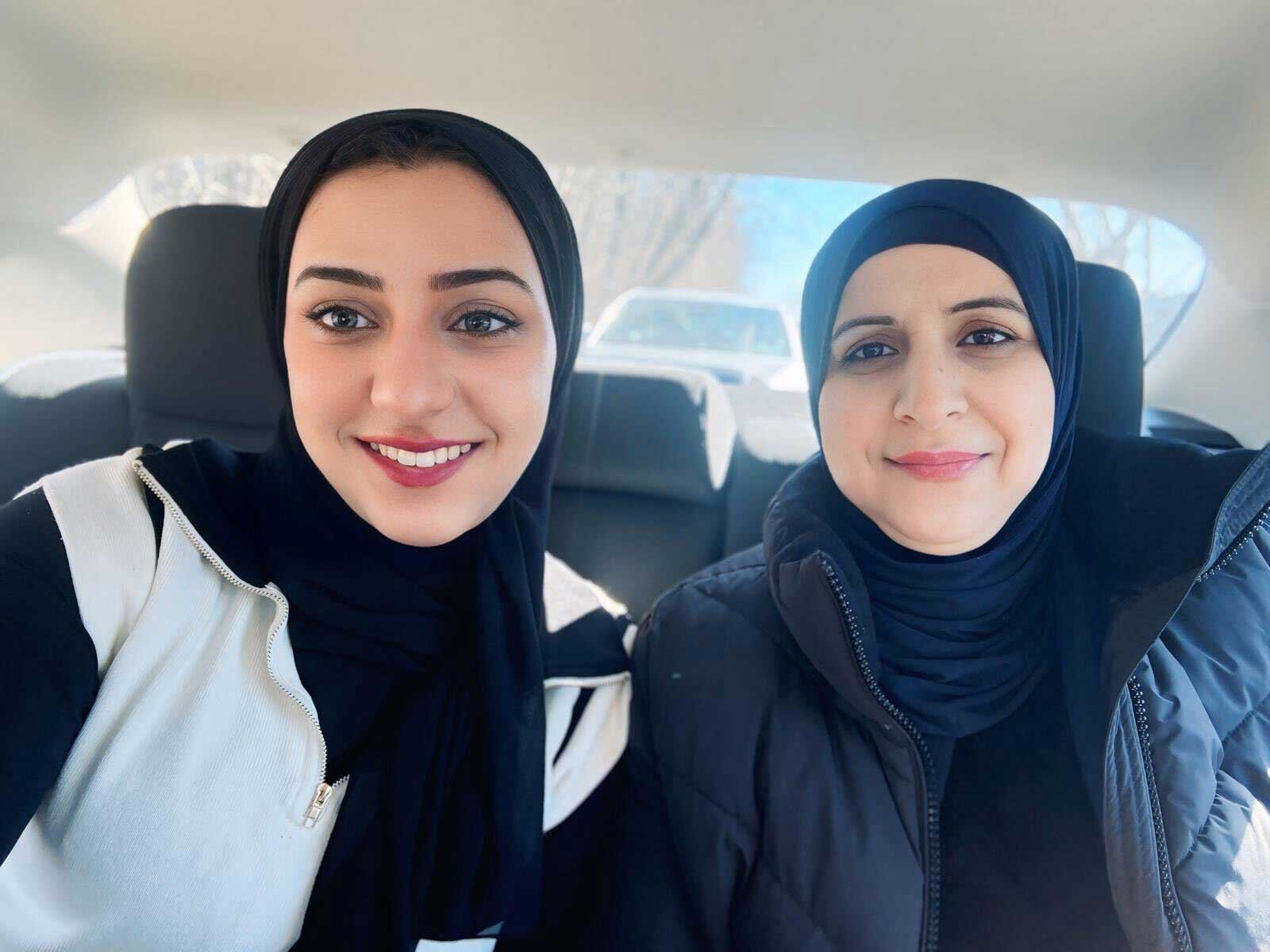
Marah has striking brown eyes, though she often prefers to hide them behind bright blue contact lenses, framed by expertly drawn strokes of eyeliner and mascara. She wears rose-colored lipstick and a black hijab over her dark hair. The fabric falls just below the scar where her throat was torn open, a wound so severe that the first doctor who saw her after the bombing shook his head and said, Take her to the fridge. Her brother was saying goodbye to her in the morgue, she says, when he realized she was still breathing.
On a bright, frigid day in February, Marah and her mother are sitting together at the kitchen table in the home of a community volunteer for HEAL Palestine who has helped them navigate the logistics of their stay in New York. Marah is holding her phone, which has become a singularly vital tether to the life she once knew, an archive of people and places that are now gone.
Marah scrolls: Here is a favorite room in their home in the northern neighborhood of Zeitoun — “My dream house,” Amal says wistfully — with bright windows framed by lavender-gray curtains. Marah’s parents lived happily there with five of their six children; her father, Maher Albar, worked long hours at the supermarket he owned nearby, and her mother took care of the family. Marah’s 26-year-old sister, Maram, a primary care doctor, lived a short walk away with her husband and their two daughters, 2-year-old Mona and 1-year-old Amal, who was named for her grandmother.
“Would you like to see them?” Marah asks. She pulls up a video clip of the two little girls wearing festive blouses, clapping happily along to the music at a family wedding.
That was life before. The day after the war started, Marah woke up just before it was time to hail a taxi to school — she always preferred to sleep until the last possible minute. There had been many conflicts before, and Marah thought this one might last a few days, perhaps a bit longer, like the others.
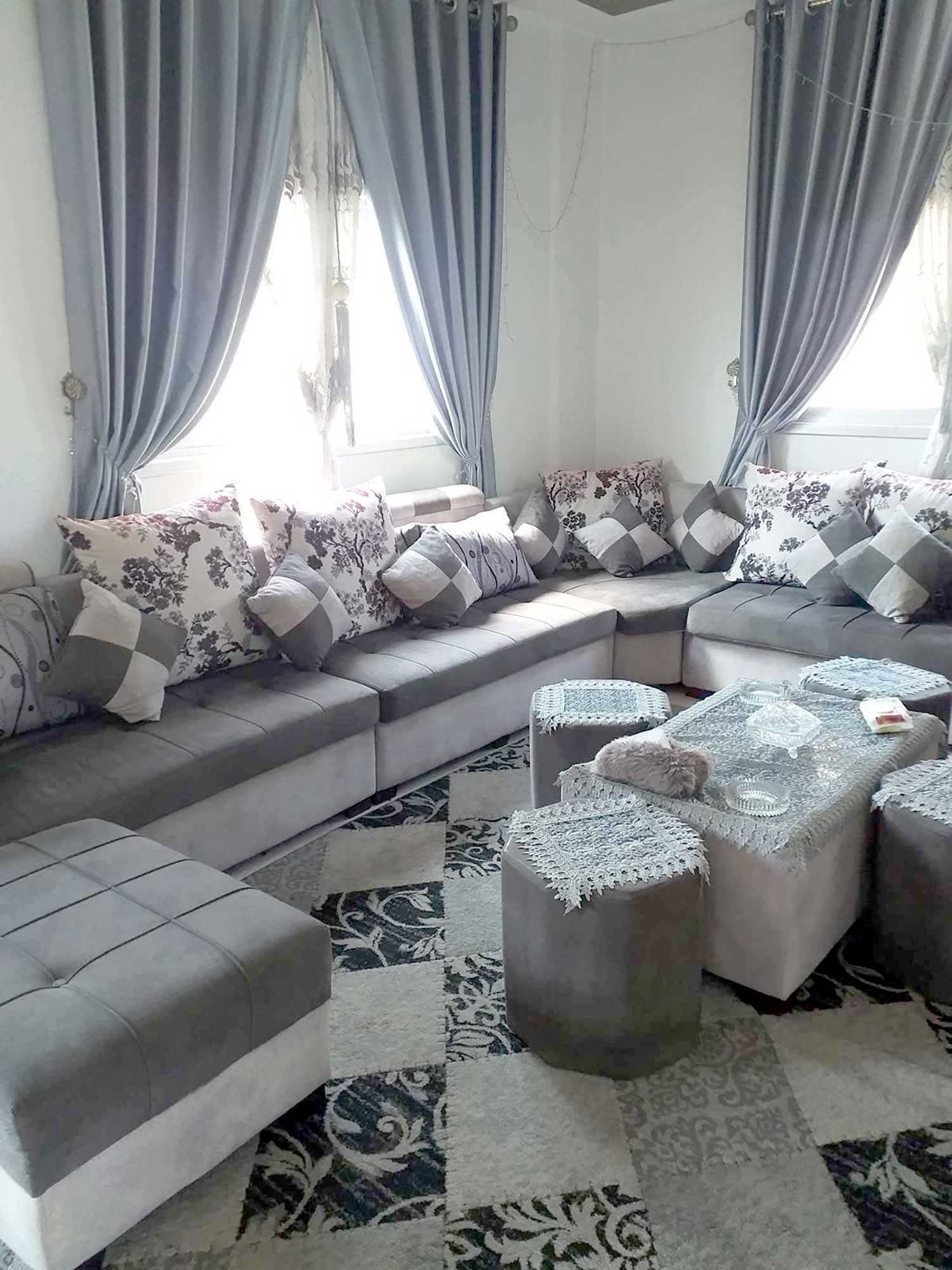
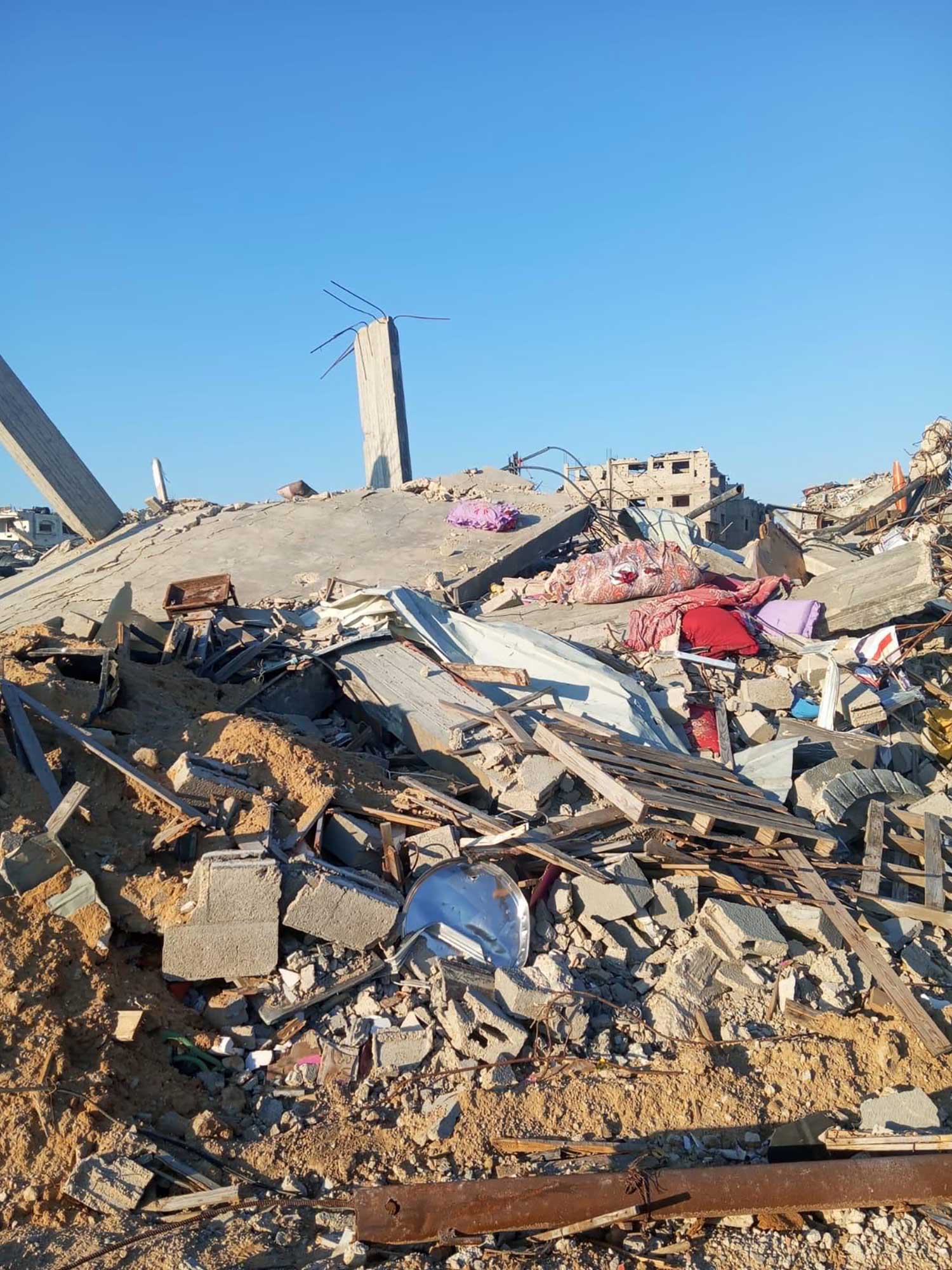
A week later, their phones woke them in the predawn darkness, blaring a warning from the Israeli military that a missile strike was imminent. The family fled, holding nothing but each other’s hands, running through the streets as blasts thundered behind them.
They found shelter with Marah’s maternal grandparents in Zeitoun, which is where they were on Oct. 29 — “the worst day of my life,” Marah says. That afternoon, northern Gaza was under heavy bombardment. Marah’s oldest brother, 25-year-old Zuhair, was visiting their sister Maram and her family when, just after 2 p.m., Maram’s house was struck and destroyed.
When the doctors at al-Shifa Hospital had told them that her brother, her sister and her niece were gone, Marah remembers shouting: Don’t say that. It isn’t true. “Still,” she says now, “it is disbelief.” She pinches her arm: It feels like someone will come any minute, she says, say wake up, and none of this will be real.
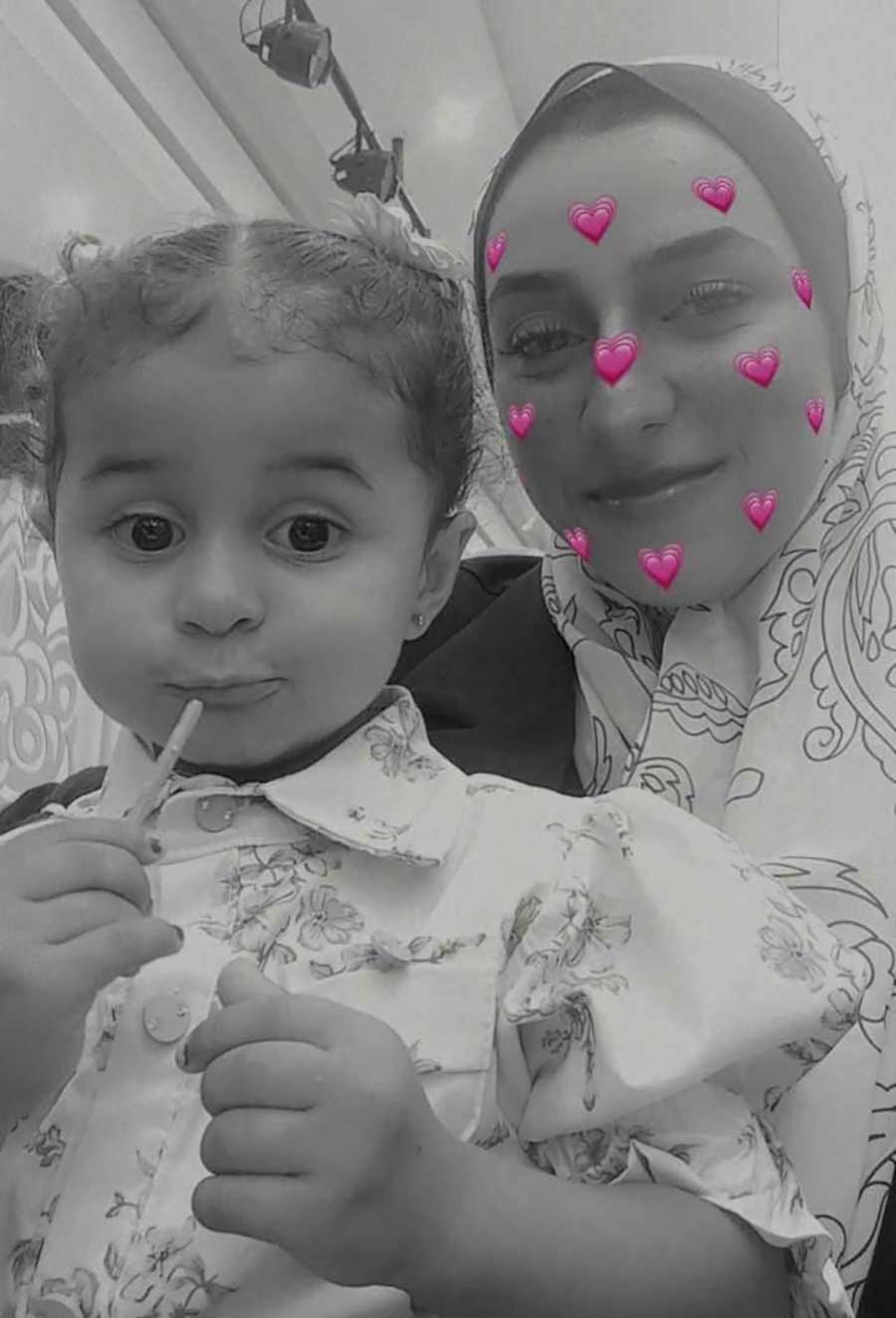
She picks up her phone again, searching for a portrait of Maram, posed with her arms around her daughters. “This is my favorite person in the world,” Marah says, touching her finger to the image of Maram’s face. “These are my daughters,” she says of the children.
Maram was like a second mother to all their siblings, Marah says, but the sisters were particularly close. A few times every week, Maram and her daughters would come to their parents’ home to spend the night. Marah and Maram would cuddle together on the floor in piles of pillows and blankets, watching Arabic movies, telling each other all the details of their days. Maram, a tired young mother, would always fall asleep first, and Marah would pull a blanket over her before rising to tuck her nieces into their beds. In the mornings, Mona — a mischievous, affectionate toddler — would race to Marah, pressing her palms to her sleeping aunt’s cheeks: Wake up, wake up!
Marah grows quiet, and her smile fades. She touches her phone, the screen now dark. “I don’t want to remember,” she says, “but I don’t want to forget.”
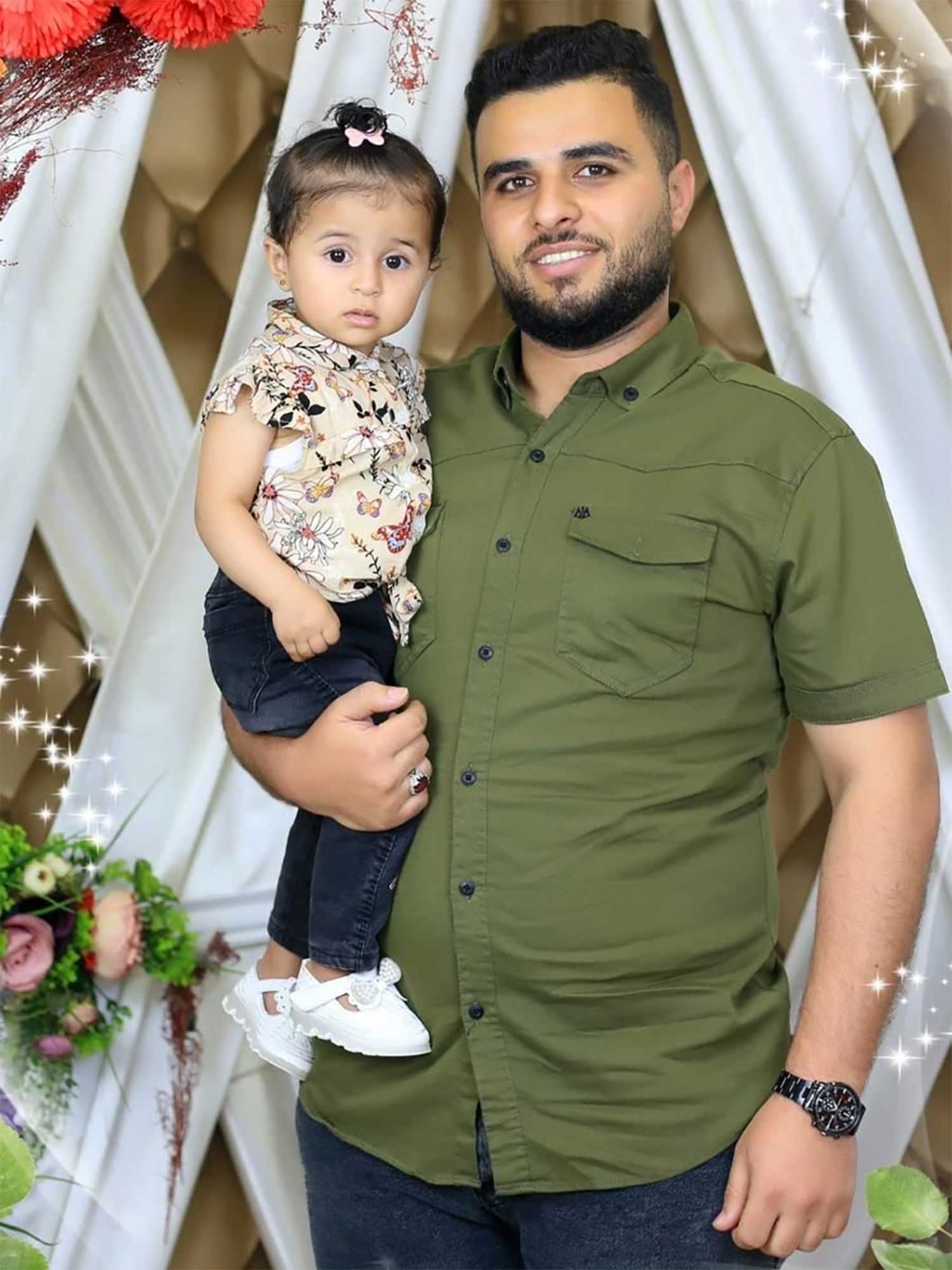
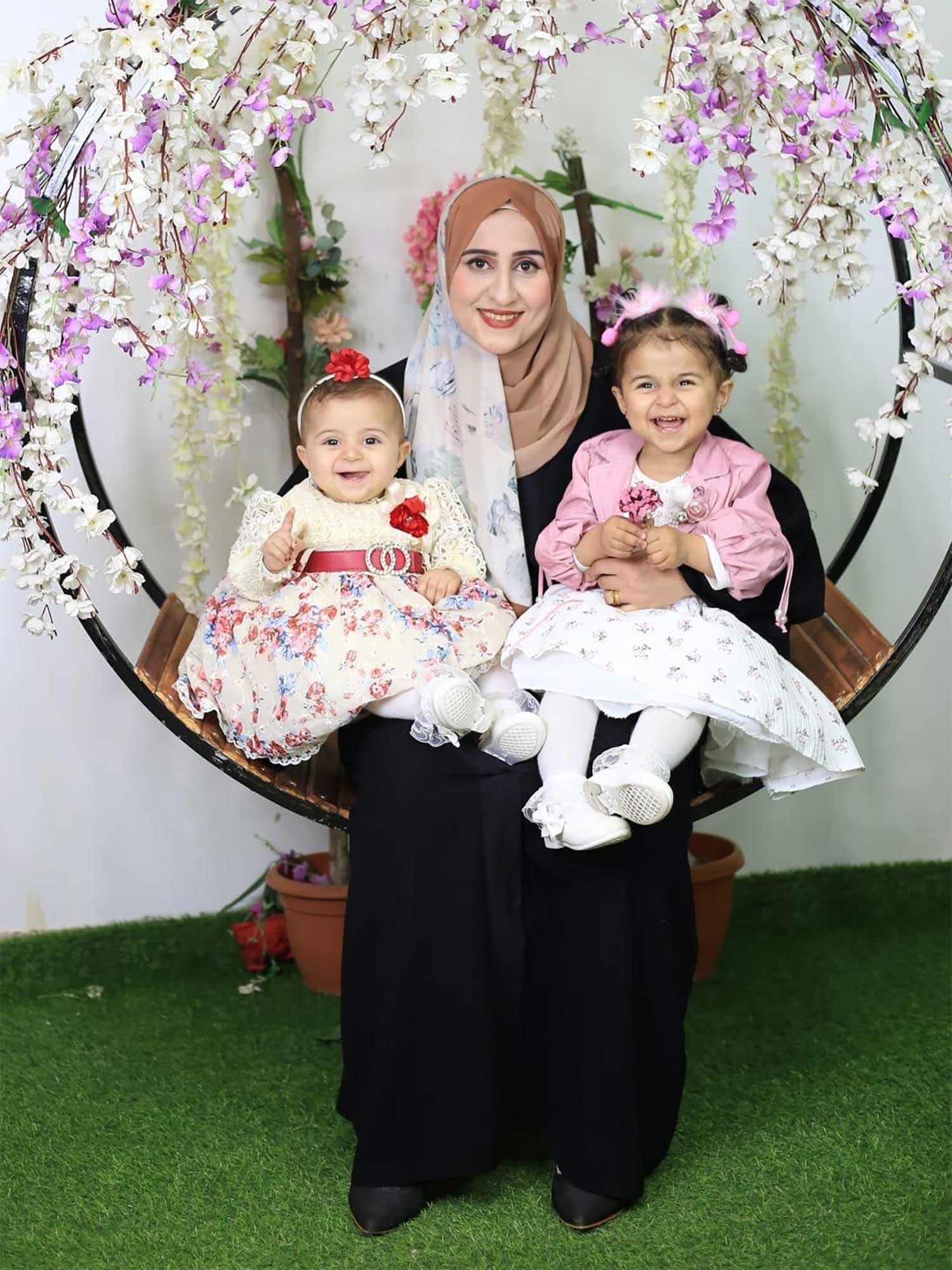
Marah can recall only one vivid, fleeting moment from the night she lost her legs. The bomb fell just after 3 a.m., demolishing the room where she was sleeping beside her niece at her aunt’s home in Rafah. She awoke to find herself pinned beneath a refrigerator, with one hand free of the wreckage. She screamed, and then her father was there beside her, shouting “There’s a hand here!”
It would be months before Marah would hear what happened after that: How her father was the one who pulled her out from the wreckage; how her mother’s leg was so badly burned that she collapsed as soon as she rose to her feet. Searching frantically through the rubble, Maher found the body of 18-month-old Amal, who had only just started walking again, her hip finally healing. He carried the child to his wife, so the elder Amal could say goodbye before paramedics raced her to the hospital.
When he walked in, Amal says, “he looked destroyed.” He took her hand, and she steeled herself.
“Our kids,” she said. “Who is gone?”
“They’re all alive,” he said. “But they amputated both of Marah’s legs.”
Behind him, doctors hovered nervously. They had avoided telling Amal about Marah’s injury for days, fearful of how she might respond. They were braced, Amal remembers, as if she might scream or flail.
She did not. “Alhamdulillah,” she said, Thanks be to God.
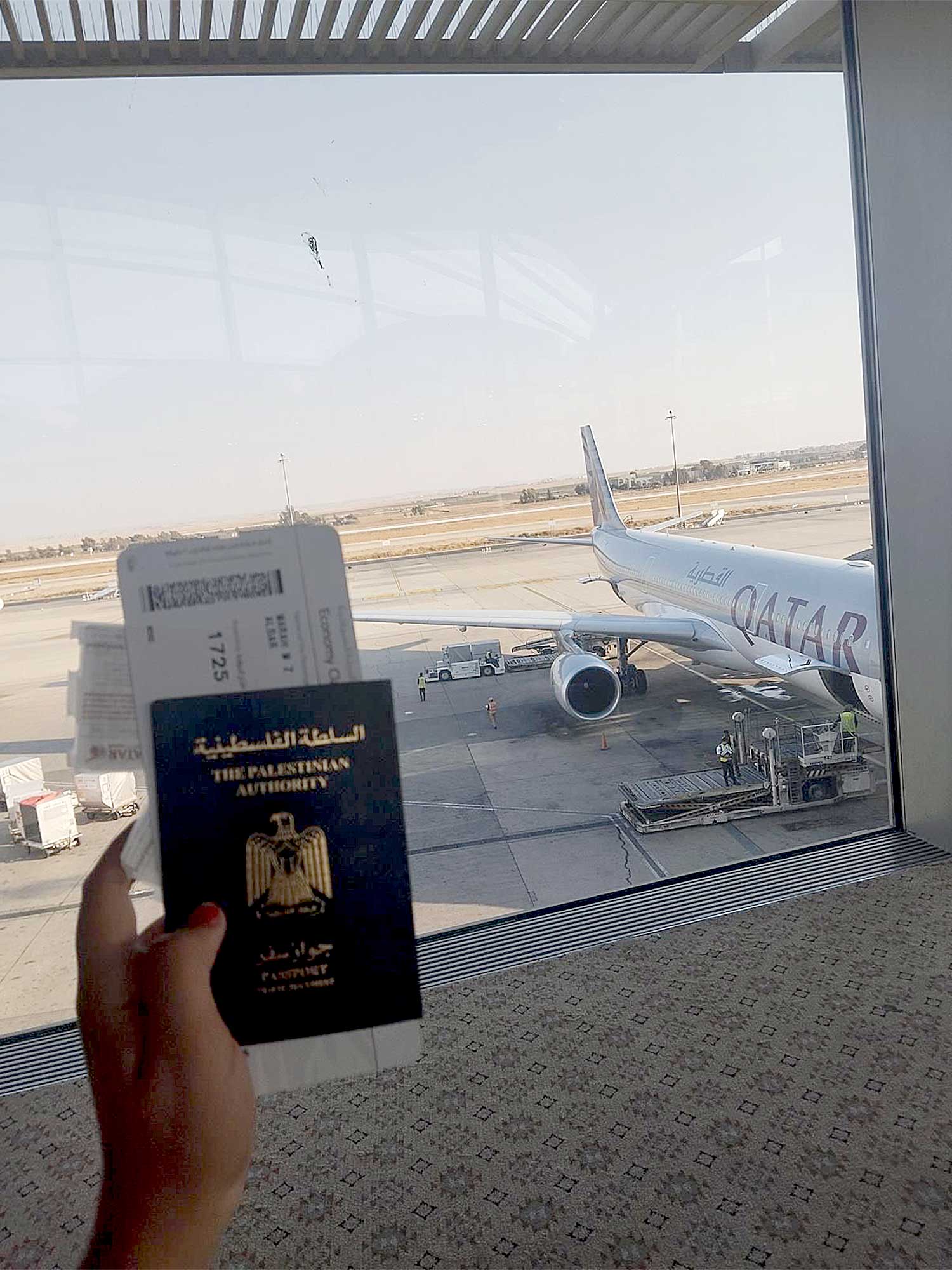
Everything about their arrival in New York felt surreal: the towering city, the faces of strangers, the pristine, state-of-the-art hospital where Marah and Amal spent their first few days. Marah had always taken comfort in beautiful things, so on the first night, she searched the internet for drawing inspiration. In her hospital room, she opened a notebook and started sketching the delicate shape of a koi fish.
Yet every moment was imbued with painful dissonance. Eating full meals felt impossible, knowing their family’s hunger. Every time the phone buzzed with a call from Marah’s father or siblings, there was a surge of relief: They’re still alive. When the bombings were especially intense, when days passed with no word from home, there was nothing Marah and Amal could do but wait and pray. Even half a world away, they were never apart from Gaza.
Marah means “happiness” in Arabic, her mother says, and from the very beginning of Marah’s life, she embodied her name. She was their doted-on fifth child, a dark-haired sprite who took her first steps at 14 months old, grinning at her parents as she proudly shuffled through their family’s apartment.
The first time Amal witnessed this, there was only joy. The second time, the circumstances felt unthinkable.
At a New York orthotic and prosthetic clinic in September, Marah slid to the edge of her wheelchair and slowly lowered herself to the floor. There, for the first time since her injury, she stood on the residual length of her legs. She would have to begin here, the specialists explained, with this new center of gravity. She would learn to walk just above the ground, and then the metal pylons of her prosthetic legs would be lengthened by another inch or two, and she would learn to walk again — and again, until she could move through the world on full artificial legs, as close as possible to her former height of 5-7.
Nine weeks later, at the physical therapist’s office, Marah took her first halting step with the new prosthetic devices, and then kept going across the large, open room. Amal watched silently, her face streaked with tears.
In December, Marah celebrated her 18th birthday at the home of a family she’d met at a local mosque. A week later, swirling flakes coated the streets in white, the first time Marah had ever seen the snow.
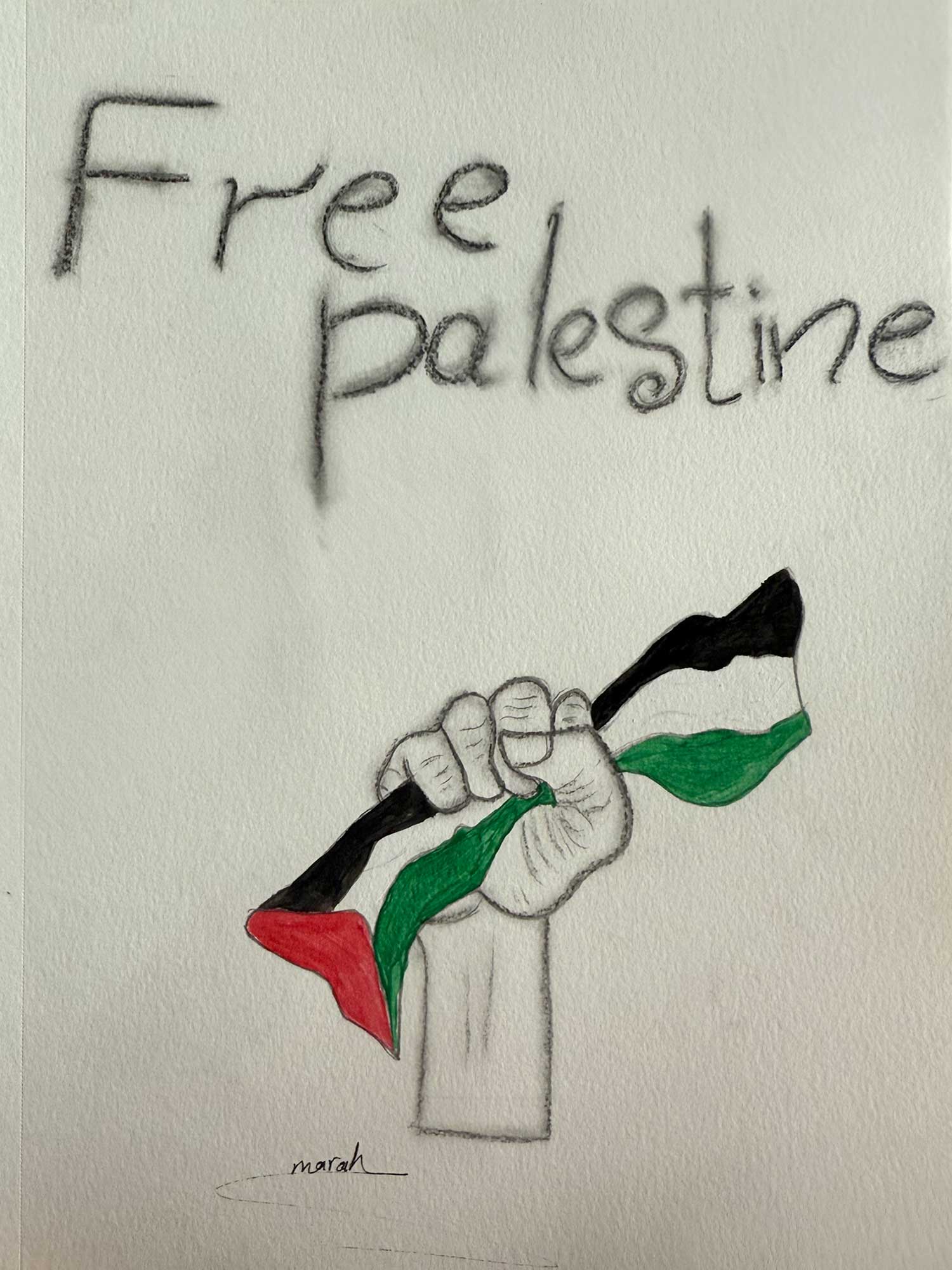
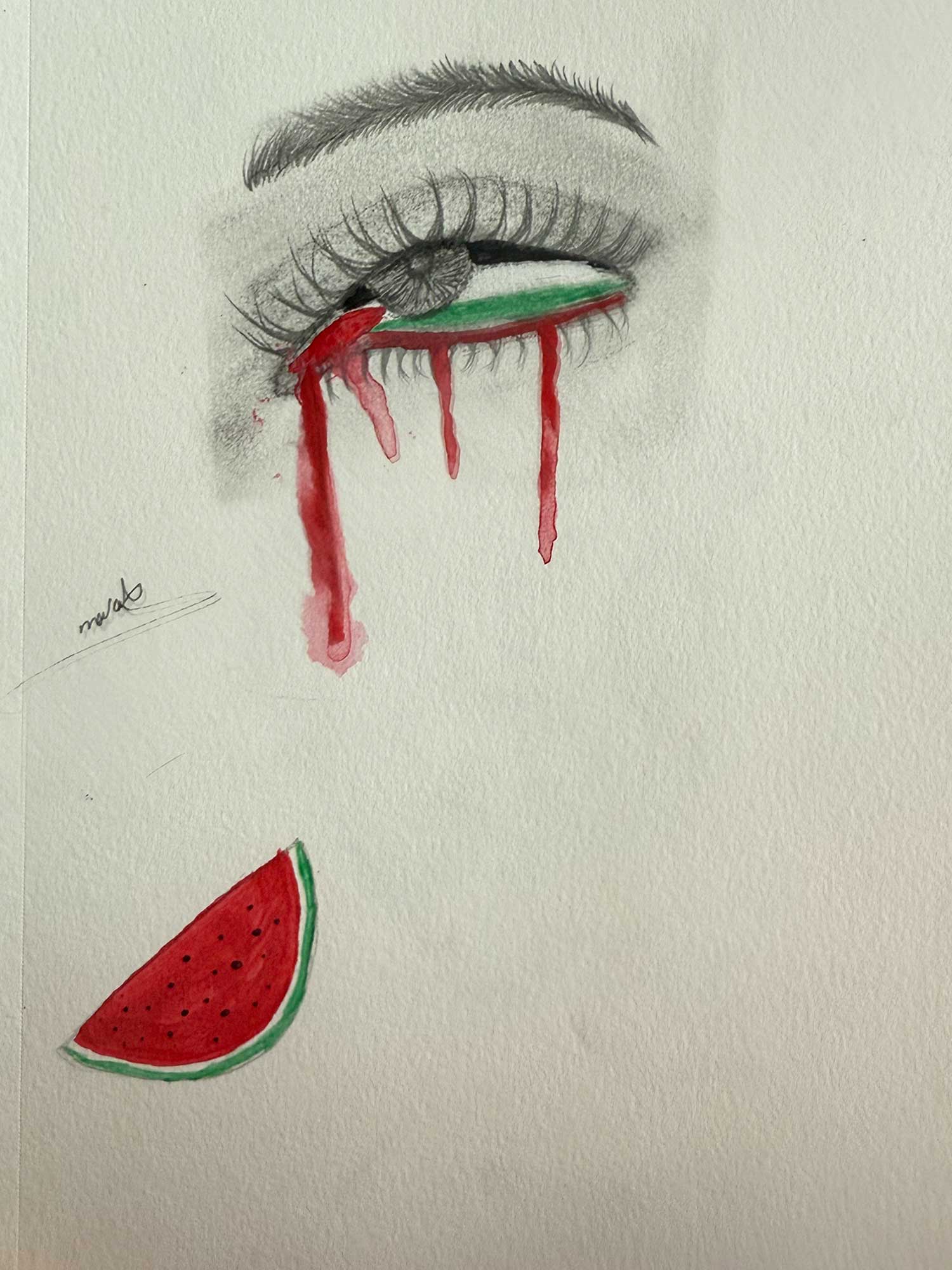
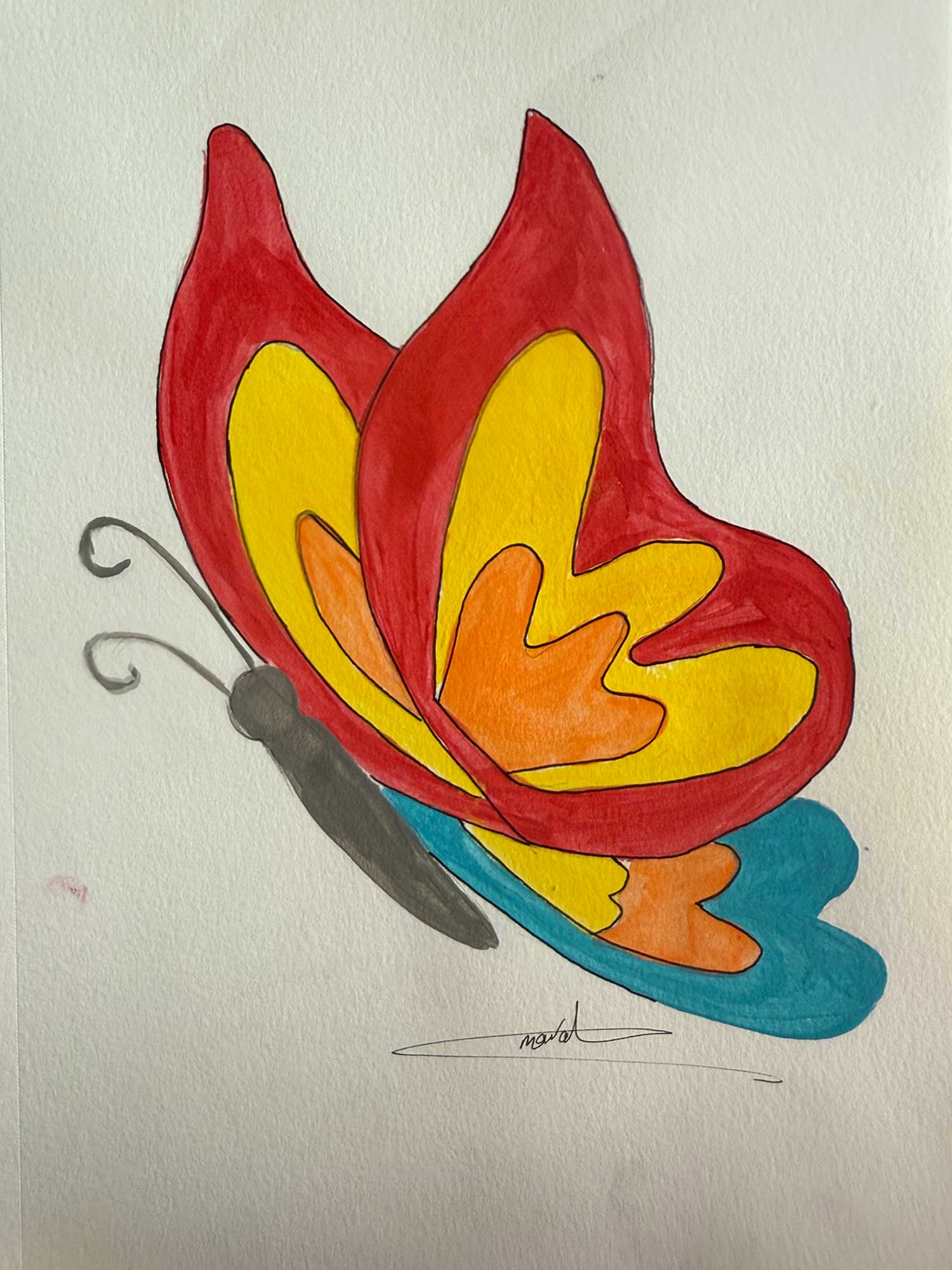
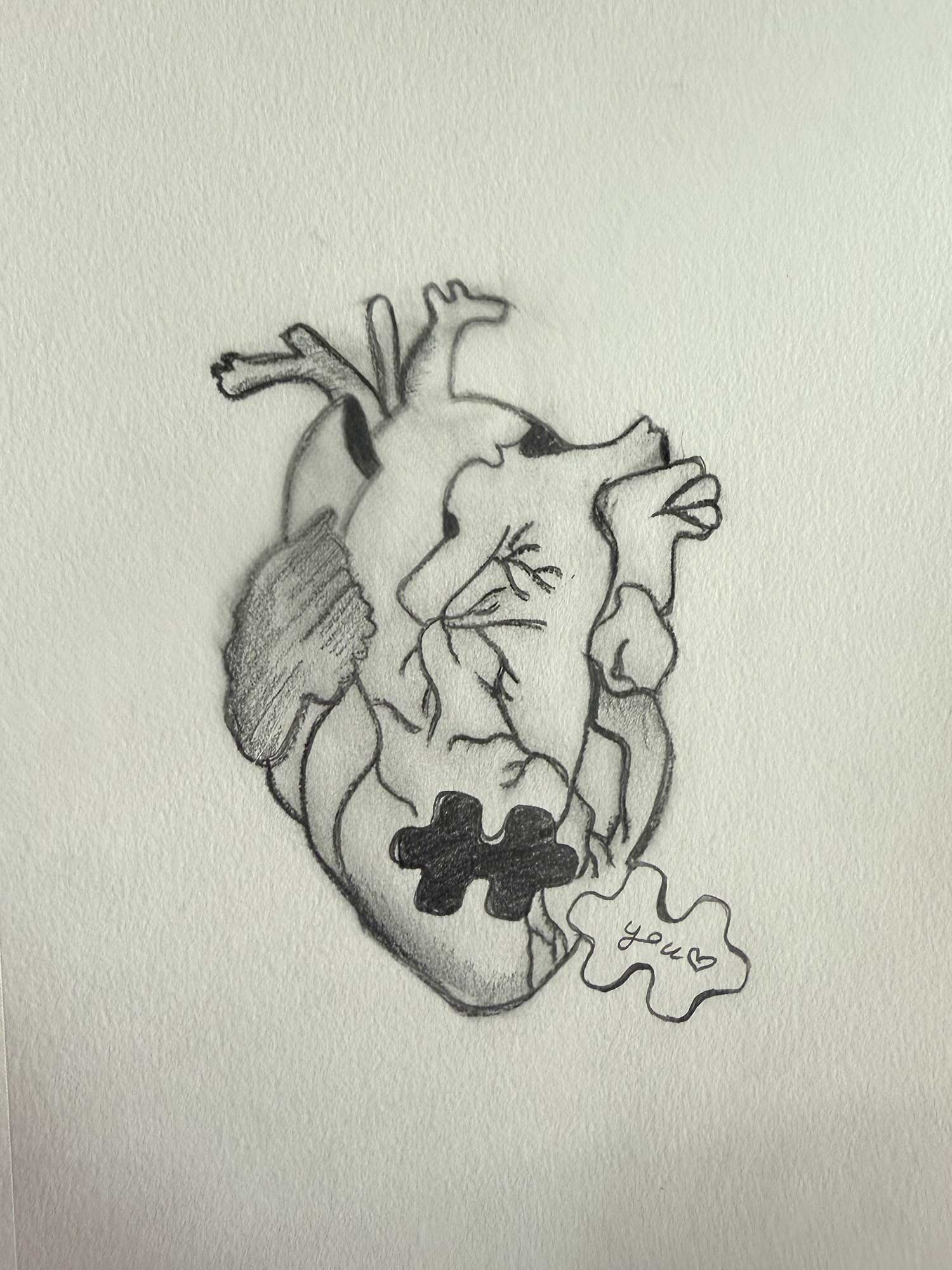
Soboh understands what this feels like; he lost his own leg in a 2003 Israeli strike in Gaza when he was 8 years old. For Palestinians, Soboh says, there is significant emphasis placed on one’s ability to work, to marry and support a family, to present yourself a certain way. He recognizes the burden of this stigma on teenagers like Marah (who is not one of his patients).
After the girl told Soboh of her discomfort in public places, he decided to stop concealing his own prosthesis with long pants. “I make my leg obvious now,” he says. “Because I wanted to tell her: ‘This is the new us. We are unique. This is what makes us different and powerful and special. God chose us to be like this.’”
“I am happy it happened to me, and not to my brothers or my sister,” she says. She wiggles her fingers. “I am happy it was not my hands.” What she wants, she says, is to be at peace with what has been asked of her. “It is all God’s will,” she says. “I have to accept it. I have to keep moving.”
So she has adapted to her new routine: Three times every week, Marah goes to physical therapy, pushing herself through exhausting, hour-long sessions. Once every month, she returns to the orthotic and prosthetic specialists to have her devices lengthened and refitted.
At the end of a physical therapy session in February, the day before she would receive taller prosthetic devices, Marah’s physical therapist asks her how she’s feeling about gaining another two inches of height. Marah smiles. “So excited,” she says.
Later, on the car ride back from the appointment, she pulls out her phone and scans the latest news from Gaza. She looks at posts about the thousands of people finally returning home to the obliterated north, carrying children on their shoulders, walking for hours along the Mediterranean coast. Outside her window, the Northern State Parkway is a blur of cold sky and skeletal trees.
“I wish I’d died in Gaza rather than left it,” Marah says.

Child psychotherapist Katrin Brubakk has heard many children and adolescents in Gaza say things like this. During her most recent mission earlier this year with Doctors Without Borders, Brubakk met a 5-year-old amputee in Khan Younis who had witnessed his father’s death. I want to be dead, together with my father, he told her. He was withdrawn; he didn’t want anyone to see his injury. Even among children so young, she says, the guilt and grief of survivors is profound. She’s come to understand the extremity of this language — I wish I was dead, I wish I had died — as more nuanced than it seems.
When she thinks of the children who have medically evacuated from Gaza, Brubakk is cognizant of the unique burden they carry — the perception that they are fortunate, that they’re okay now. “They are lucky in the sense that they get medical care, and they can stay alive,” Brubakk says. “But if that is the only thing we see, we don’t respect the fact that there is still so much struggle.”
In her work with the children of Gaza, Brubakk says, she considers it one of her most essential tasks to instill some sense of future possibility. “Hope is the engine of everybody’s life,” she says. “We ask them: ‘One day, the war will be over. What do you hope for in your life? What do you dream?’”
“It is still happening,” she says. “It is not finished.” She snaps her fingers. “What is therapy, when everything can be gone in a second?”
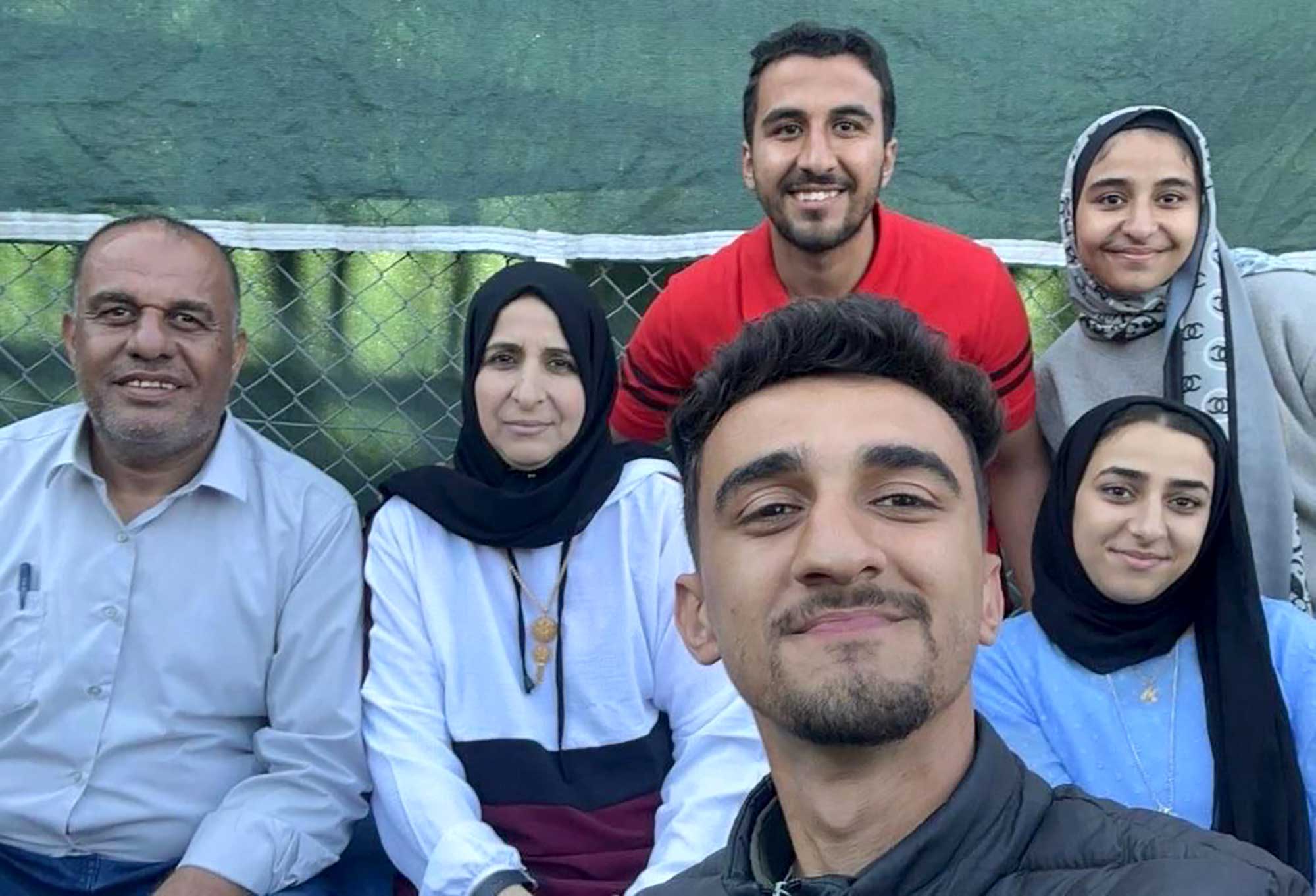
On the evening of March 17, Marah was watching the TV news: Israel had broken the latest ceasefire agreement, unleashing a torrent of airstrikes in Gaza that would claim hundreds of lives in a matter of hours. Panicked, she texted her father and siblings. Her father called back right away. The bombs were close, he said, but they were safe for now. On the television, Marah saw footage of missiles streaking through a dark sky.
The way back, she knows, is through her own physical healing. The specialists have been talking to her about the options for her permanent legs, the ones she’ll eventually take with her when she leaves the United States. Maybe in the fall, they say, depending on her progress, she’ll be ready to go.
Late on sleepless nights, Marah scrolls through catastrophic news reports from Gaza, sharing graphic videos on Instagram alongside prayers and strings of emojis — broken hearts, wilted roses. She continues her GED coursework, even though she can no longer envision what lies beyond that milestone. She talks to her older sister, quiet murmurs in moments when Maram’s absence feels almost real enough to believe. I need you here, Marah tells her.
Hope often feels beyond reach, but she still holds the dream of returning to Gaza. “I will go back again, Inshallah,” she says, a declaration and a prayer: When she is strong and sure with every step, she will cross the big room at the physical therapist’s office, and then she will cross an ocean, and then — one day — the border of the only land her family has ever known. She can’t imagine what kind of life will await her there, or who might be left to share it; but her stride grows longer and steadier all the time, and she keeps moving toward home.
Then, on July 1, Marah’s brother calls with news: Their father was critically injured in a missile strike while working at his supermarket. Hours later, Marah shares an update. “He was directly bombed, and his condition is very difficult. I wish I could get him out of Gaza,” she writes. “I hope you pray for him.”















